Talking Points for the Draft Seattle Comprehensive Plan
Talking points for the Draft One Seattle Comprehensive Plan
Watch a training video, organize mutual aid, read a zine, get inspired.
Talking points for the Draft One Seattle Comprehensive Plan
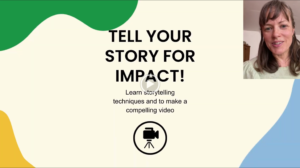
Learn how to tell your story through video to make an impact!
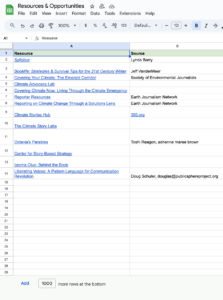
Check out our recommended readings and literary outlets.
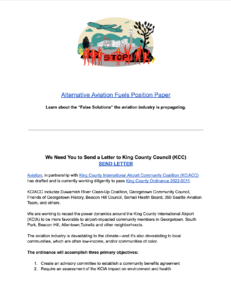
Aviation, in partnership with King County International Airport Community Coalition (KCIACC) has drafted and is currently working diligently to pass King County Ordinance 2022-0011.
KCIACC includes Duwamish River Clean-Up Coalition, Georgetown Community Council, Friends of Georgetown History, Beacon Hill Council, Somali Health Board, 350 Seattle Aviation Team, and others.
We are working to recast the power dynamics around the King County International Airport (KCIA) to be more favorable to airport-impacted community members in Georgetown, South Park, Beacon Hill, Allentown,Tukwila and other neighborhoods.
The aviation industry is devastating to the climate—and it’s also devastating to local communities, which are often low-income, and/or communities of color.
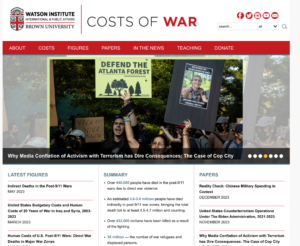
The Costs of War project conducts and publishes research to facilitate debate about the ongoing consequences of the United States post-9/11 wars in Afghanistan, Iraq and elsewhere; the costs of the U.S. global military footprint; and the domestic effects of U.S. military spending. Created in 2010 and housed at Brown University’s Watson Institute for International and Public Affairs, the Costs of War project builds on the work of over 60 scholars, experts, human rights advocates, and physicians from around the world.
We aim to raise awareness and foster discussion by providing the fullest possible account of the human, economic, political, and environmental costs of U.S. militarism, laying the foundation for better informed U.S. foreign and domestic policies.
2018 was a year of building power. Our new Housing and Transportation teams started pushing progressive policies at the city level. Our Amazon campaign began organizing and training tech workers to leverage their power to act on climate. We delved into state policy work, finding a niche where we could bring people power to bear on Olympia.
In 2019, 350 Seattle dramatically scaled up our work to support a transition away from fossil fuels and towards an equitable clean energy future. Below are highlights from our three overarching areas of work.
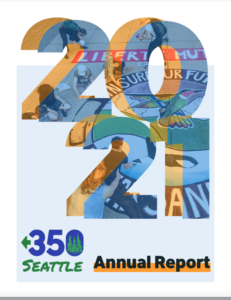
In 2021, we began to pull ourselves out of pandemic shock and into our new, still ambiguous reality. We gathered together again–safely, and outdoors—while also taking advantage of the continued existence of Zoom hearings by showing up in ever-greater numbers to give testimony at both the city and state levels.

Dear readers,
We are so excited to bring you our second community zine. This year’s theme, home, was inspired by Robin Wall Kimmerer’s book Braiding Sweetgrass. We’re grateful to everyone who contributed to this collaborative project with art, ideas, and visions.
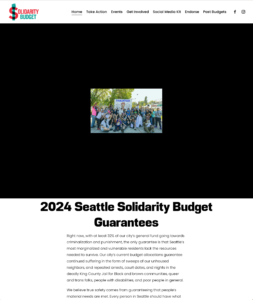
Right now, with at least 32% of our city’s general fund going towards criminalization and punishment, the only guarantee is that Seattle’s most marginalized and vulnerable residents lack the resources needed to survive. Our city’s current budget allocations guarantee continued suffering in the form of sweeps of our unhoused neighbors, and repeated arrests, court dates, and nights in the deadly King County Jail for Black and brown communities, queer and trans folks, people with disabilities, and poor people in general.
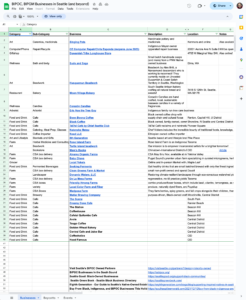
Please consider supporting local Black, Indigenous, and People of Color (BIPOC) owned businesses! Here is a list of some local community BIPOC businesses to support, with lists of others embedded!
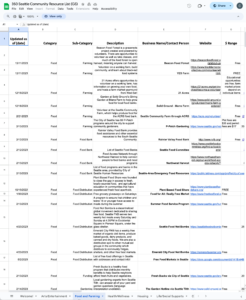
Our Community Activist Resources Lists help support our most active and our broader movement with some of the vast number of resources available in the Seattle area for 350 Seattle and the general community! Check out the reduced to no cost resource list here and share with others in our broader movement community who may be interested.